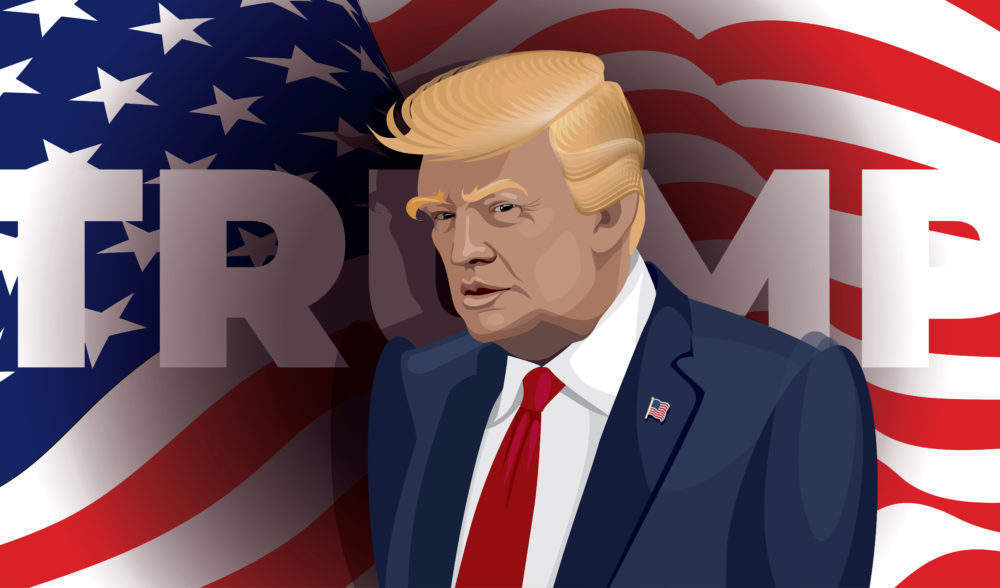The future of the semiconductor industry will be shaped by a range of disruptive themes, with artificial intelligence (AI) being one of the themes that will have a significant impact ON Semiconductor companies.A detailed analysis of the theme, insights into the leading companies, and their thematic and valuation scorecards are included in GlobalData’s thematic research report,Artificial Intelligence, 2020 Update – Thematic Research. Buy the report here.
AI is everywhere, and it has an impact on all our lives. However, years of bold proclamations have resulted in AI becoming overhyped, with reality often falling short of the world-altering promises. The coming years will be less about making bold statements and more about delivering tangible benefits. Practical uses of AI will be front and centre, as businesses ensure they get their money’s worth by using AI to address specific use cases.
The market for AI can be difficult to size, as the technology is often embedded into larger systems. That said, GlobalData forecasts suggest that the market for AI platforms will record a compound annual growth rate (CAGR) of nearly 14% during 2019-2024.
As AI becomes more pervasive and embedded in life-changing decisions, the need for transparency has intensified. There have been plenty of high-profile cases in recent years where AI has contributed to bias and discrimination, with the use of facial recognition for policing just one example. There is a high probability of a shift from loose self-regulation to government involvement in AI over the next couple of years. In turn, Big Tech is increasingly using AI to solve the privacy and bias problems that the technology itself created. Explainable AI, which allows humans to understand the path a model took to make a decision, and synthetic data training, which circumvents the small data problem using artificially created data, are two ways AI is being used to develop trust.
However, not all companies are equal when it comes to their capabilities and investments in the key themes that matter most to their industry. Understanding how companies are positioned and ranked in the most important themes can be a key leading indicator of their future earnings potential and relative competitive position.
According to GlobalData’s thematic research report, Artificial Intelligence, leading adopters include: Alibaba, Alphabet, Amazon, IBM, Intel, Microsoft and NVIDIA.
Insights from top ranked companies
As the world’s leading provider of cloud infrastructure services, Amazon competes with Google in AI services. It offers a slew of AI and ML services through AWS. These include pre-trained AI services for image and video analysis (Rekognition), conversational agents (Lex), and text-to-speech applications (Polly). Cloud ML platform SageMaker was launched towards the end of 2017. The most well-known AI product from Amazon is Alexa, its virtual assistant. As part of its Echo range of devices, Alexa gave Amazon an early lead in the nascent smart speaker market. Amazon orchestrates the world’s largest fleet of mobile robots in its warehouses and has invested heavily in AI-related M&A activity, acquiring Canvas, a warehouse robotics company, in 2019, and Zoox, a leading autonomous vehicle start-up, in mid-2020.
AI is integral for Alibaba, the world’s largest ecommerce platform, as it can predict what customers might want to buy. NLP is used to generate product descriptions for the site automatically. Alibaba is investing heavily in AI. In 2020, the company announced that it would spend $28bn on cloud, AI, and other technologies over the next three years. The tech giant has a strong cloud foundation for its AI platform, PAI, which supports various business units within the Alibaba ecosystem. Alibaba has been chosen by the Chinese government to spearhead smart cities. Its ET Brain platform predicts outcomes across traffic management, healthcare, and urban planning, drawing on cameras, social media, and government data. Alibaba introduced its first AI inference chip in 2019. Its Pingtouge chip subsidiary could become a leading chip player within five years. Lagging behind its US and domestic rivals, Alibaba plans to spend $1bn bolstering its AIoT ecosystem that supports its voice assistant (AliGenie) and smart speaker (Tmall Genie). Linking content and services from the broader ecosystem, which spans entertainment, healthcare, and education, is the stated priority. Alibaba has also made numerous strategic investments, including in SenseTime, a prominent AI unicorn.
NVIDIA has dominated the GPU market for years. However, it faces competition from companies such as Google, Intel, and Graphcore. NVIDIA has made efforts to stay ahead. In 2019 it acquired Mellanox, which focuses on high-performance interconnected technology and will enable NVIDIA’s accelerated computing platform for AI workloads. In May 2020, NVIDIA unveiled its next-generation GPU technology called Ampere, which will become the foundation for its AI strategy and product portfolio. Ampere features the third generation of Tensor Core, a chip that’s purpose-built for accelerating AI. The A100 GPU is the first AI accelerator based on the Ampere architecture and will offer unified support for training and inference. On the software front, NVIDIA unveiled Jarvis, a new application framework for building conversational AI services. Like Intel, NVIDIA is also making its mark in the autonomous vehicle sector, adding Mercedes to its already impressive client-roster in mid-2020. In September 2020, NVIDIA announced plans to acquire UK-based chipmaker Arm for $40bn.
To further understand the key themes and technologies disrupting the technology industry, access GlobalData’s latest thematic research report on Artificial Intelligence.
- Xilinx
- Graphcore
- TSMC
- STMicroelectronics
- Cambricon
- Qualcomm
- Texas Instruments
- SK Hynix
- NXP
- Apple
- Micron
- ROHM
- Melexis
- IBM
- Infineon
- Renesas
- Silicon Labs
- Aixtron
- Analog Devices
- SoftBank
- ON Semiconductor
- MediaTek
- Skyworks
- AMD
- Baidu
- AMS
- Zeno
- Tokyo Electron
- SMIC
- Microchip
Data Insights
From

The gold standard of business intelligence.
Blending expert knowledge with cutting-edge technology, GlobalData’s unrivalled proprietary data will enable you to decode what’s happening in your market. You can make better informed decisions and gain a future-proof advantage over your competitors.









